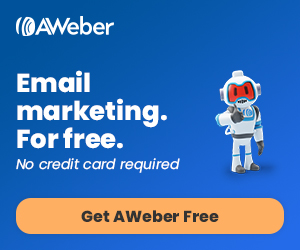Starting off with a solid plan can make or break your affiliate website. In this post, we’ll cover these essentials for success, based on my 10+ years’ experience as a full-time affiliate marketer:
-
- Choosing a Profitable and Sustainable Niche
- How I Started My Affiliate Website
- Finding High-Quality Affiliate Products in Your Niche
- Getting to Know Your Audience
- Set Goals for Your Business!
- Choosing the Right Website Platform and Website Hosting
- What About Branding?
- Content Creation Strategies
- The Importance of SEO (Search Engine Optimization)
- Driving Traffic to Your Affiliate Website
- Tracking Your Progress Using Analytics
- Engagement: Yea or Nay?
![]()
Choosing a Profitable and Sustainable Niche
Right from the get-go, picking a niche that’s both profitable and sustainable is crucial. You’ll want to dive deep into niche research and really get the lay of the land.
This involves checking out the competition, seeing what works, and spotting any gaps you could fill. Trust me, understanding your field inside-out makes a huge difference.
I strongly suggest you choose a topic you not only like, but love, especially if you’re hoping to make your affiliate website your full-time job at some point.
Believe me, when your job is working on something you actually love, it’s downright thrilling. Let me take a minute to elaborate on that!
Check out this expert training series called, Mastering the Art of Niche Selection for lots of help choosing a niche.
 How I Started My Affiliate Website
How I Started My Affiliate Website
I’ve been working as a full-time affiliate marketer for 10 years. The first affiliate marketing training program I purchased was a complete scam.
Luckily, I didn’t give up and I eventually found a company called, Wealthy Affiliate.
They taught me, step-by-step how to become a successful, full-time affiliate marketer. You can read my full review of Wealthy Affiliate and all they have to offer here.
One of the things they emphasized is that we choose a niche we love. I chose animals! I’m so glad I did, because all these years later I still love my job. Seriously, I can’t believe I’m actually able to make a living with a website all about animals.
For help choosing the right niche, check out this 6-part training series, Mastering the Art of Niche Selection.
Finding High-Quality Affiliate Products in Your Niche
The key to choosing affiliate products to promote on your site is to choose programs that align perfectly with your niche. Working with reputable affiliate partners who match your audience’s interests makes their offers feel natural on your site.
This trustworthiness will go a long way in encouraging conversions and building affiliates that are a good fit can propel your income significantly.
Wealthy Affiliate has a built-in platform where you can search for affiliate programs in your niche. You can also check out reputable affiliate networks such as ClickBank or Impact.
Watch my video, How to Find Products to Sell as an Affiliate for help.
Get to Know Your Audience!
Once you’ve settled on a niche, it’s all about knowing your audience. Think about who they are and what they need.
Crafting a clear persona for your target group helps tailor your content and marketing strategies directly to them.
Whether you’re speaking to tech enthusiasts or home-cooking aficionados, your content should feel like it was made just for them.
For help learning about getting to know your audience, check out this live training, How to Become Addictive to Your Audience!
Set Goals for Your Business!
Of course, you can’t get moving without concrete goals. Without clear targets, you’re just firing shots in the dark.
Maybe you want a certain number of visitors, maybe it’s about the quality of those visits, or even specific sales targets or income goals.
Define what success looks like, so you know exactly what you’re aiming for and how to measure your efforts along the way.
For great information and perspective about setting goals for your business, check out this article from one of the owners of Wealthy Affiliate (you’ll be surprised!)
Choose the Right Website Platform and Hosting
Choosing the right platform can be a game-changer for your website. Finding a content management system that’s user-friendly and fits your needs should be a top priority.
I definitely recommend using WordPress. It’s all I use for my affiliate websites and it’s outstanding. It’s user-friendly and easy to scale.
WordPress is what Wealthy Affiliate uses and they actually set up a WordPress website for you with all the behind-the-scenes setting already in place, free within their Free Starter Membership.
They also provide free, top-notch website hosting for your website. You can read more about their website hosting here.
Seriously, I can’t stress enough how important it is for you to have and own our website on WordPress. Don’t go with some cheap website-making company. They’ll put all sorts of rules and limits on the use of your site, won’t provide adequate security, and likely won’t do much for customer service if you have a problem.
Please just believe me on this one.
What About Branding?
Maybe I shouldn’t do this, but I have to be honest about branding. Like I said, I’ve been doing this for 10 years. In all that time, I never focused on “my brand.” I think it’s a silly concept, actually.
You see all these young people on YouTube talking all about how they built their “brand.” It’s just dumb. Believe me when I say that you can be beyond successful online without creating a “brand.”
Now I will say this: your website should have a clean, intuitive design that speaks to your target audience. This can make all the difference. It’s not just about aesthetics; it’s about making a lasting impact.
But that’s it. Make your website nice, make any social media accounts you create match it’s look, and leave it at that.
Content Creation Strategies
Think about your content creation strategy as building the backbone of your affiliate website. Define a plan that highlights your expertise and offers real value to your visitors.
This means creating high-quality content consistently, whether it’s blog posts, reviews, or tutorials. The goal here is to position yourself as a trusted source in your niche.
That being said, again I’m gonna be a little bitchy lol. Don’t make a career out of content strategy. Don’t follow those same young online business owners on YouTube who have charts upon charts, spreadsheets upon spreadsheets, spend hours of research, etc. all about their content strategy.
Is having a content creation strategies important? Yes. You don’t want to just “throw spaghetti at the wall,” so to speak.
Wealthy Affiliate offers a great 5-part training series on content creation. Also check out my post, How to Create Valuable Content for Affiliate Marketing.
Spending the time learning this from the start will save you thousands of hours in the future, and set you up for success with your site.
The Importance of Search Engine Optimization (SEO)
Speaking of visibility, don’t overlook search engine optimization. SEO isn’t just a buzzword—it’s the foundation that will help your website show up when people search for the stuff you’re sharing.
Pay attention to on-page SEO elements, like keywords and meta tags, but also consider the importance of mobile optimization and page load speed. Every little tweak makes your site more attractive to visitors and search engines alike.
I know I keep mentioning Wealthy Affiliate, but it’s their training that made me successful. They have lots of training about SEO, like this one: Mastering SEO in Google.
Driving Traffic to Your Affiliate Website
Promotion is the name of the game once your website’s live. You’ve got to get it out there so people know it exists.
Social media is one of your best tools here.
Whether it’s Instagram, Pinterest, or LinkedIn, pick platforms that make sense for your audience and consistently post with links to your website.
Consistency really is key when building any social media platform. And don’t try to do them all. I made that mistake early on. I tried to consistently post all of my content to Facebook, Pinterest, (then) Twitter, LinkedIn, Reddit, Tumbler…you name it!
Needless to say, I just burned myself out and never made any real progress on any of them. My advice is to pick one (maybe two at most) and be consistent posting your content there.
I personally get the most social media traffic from Pinterest. I recommend a course called Pinteresting Strategies to get the most out of Pinterest. Wealthy Affiliate also has a lot of great training about how to post on the various social media platforms.
Email marketing can bring traffic in a way you’re probably not aware of.
I think when people think of email marketing, they think of those online marketers who force people into their stupid, cheesy sales funnels where they bombard you with salesy emails until you get fed up and unsubscribe.
I don’t do that.
Rather, I use email marketing as a way to continuously drive traffic to all of my content. I use AWeber to set up a funnel where I create an email describing and linking to every post on my website. I set them up to send about every 5 days or so.
I have multiple opt-in options across my websites. It’s usually most effective to offer a freebie in exchange for someone signing up for your newsletter/email list. Watch my video on how I set this up on my sites.
Then once they sign up, they automatically start receiving those emails from me in the funnel. Thus, continuously getting traffic to all of my posts while continuing to provide value to my subscribers.
Here’s a training that’ll help you with email marketing: Email Marketing for Beginners: 5-Part Training Series
Also, check out my post, Email Marketing Tips for Affiliate Marketers to THRIVE.
Pay-per-click advertising.
This is is another way to drive traffic to your affiliate website. You have to be careful with this; it can get expensive and you can lose a lot of money if you don’t know what you’re doing.
I suggest starting small and get expert training before you start. There’s a guy named Vitaliy, a fellow Wealthy Affiliate member, who has a ton of training about PPC. Here’s one of his classes – you’ll see once you’re there that he has lots of PPC training available: Are You Ready to Start PPC?
Tracking Your Progress Using Analytics
Keeping an eagle eye on your performance is essential. Analytics tools can offer insights into what’s working and what’s not. Engage with metrics like visitor behavior, conversion rates, and traffic sources.
With this data, you can refine your strategies and shed light on opportunities to optimize and grow. It’s all about fine-tuning until everything clicks. Learn exactly how to do this in this training series: Track Your Progress Using Analytics.
Engagement: Yea or Nay?
Lastly, some people think that maintaining engagement to build trust with your audience should never stop. They say you should create a community feel by encouraging interaction, interacting with people on social media, and responding to comments.
I don’t personally agree with this. First, and this is probably unique to me, not having to interact with people was one of thee main reasons I quit my job over a decade ago to work online!
Seriously. I worked in offices for 25+ years and I got so sick of the nonsense, the office politics, people complaining and gossiping constantly. It was a big motivation for me to quit the 9-5 and start an online business.
So, nope. You won’t ever see me sitting around on social media having conversations with people. Posting super valuable, helpful content on social media? Yep. I provide help for people all day long. I just don’t wanna chat.
Also, I’m just not sure it’s necessary, or even doable. Think about successful YouTubers. They literally get thousands and thousands of comments on their videos. It’s impossible for them to reply to every comment, yet not doing so hasn’t hurt their growth one bit.
And I think people know that content creators don’t necessarily have time to interact all the time. It’s extremely time consuming.
You use your best judgment on engagement. Answer comments and respond to people’s questions as much as you want to, and as much as you can make time for without burning yourself out or slowing down your progress because you could be creating more content instead.
I’m just sayin.
I Hope This Helped!
Congratulations on your decision to start an affiliate marketing website! I hope it grows to be exactly what you want, whether that’s a side hustle to supplement your income or a full-blown online business like mine.
Wealthy Affiliate has a training series you might want to check out for more information and help: How to Start an Affiliate Marketing Website: 5-Part Training Series.
You can also go to their website where they explain, step-by-step, how to do affiliate marketing successfully.
Please comment below about why you’re starting an affiliate website and what niche you’re thinking about! Debra

















Starting an affiliate website requires careful planning. Focus on choosing a profitable and sustainable niche that you’re passionate about. Research high-quality affiliate products, understand your audience, and set clear goals for your business. Use platforms like WordPress for ease of use and scalability, and don’t forget about SEO for organic traffic. Consistent content creation and strategic social media promotion will drive visitors to your site. Lastly, use analytics to track your progress and fine-tune your strategies. Stay focused, and success will follow!